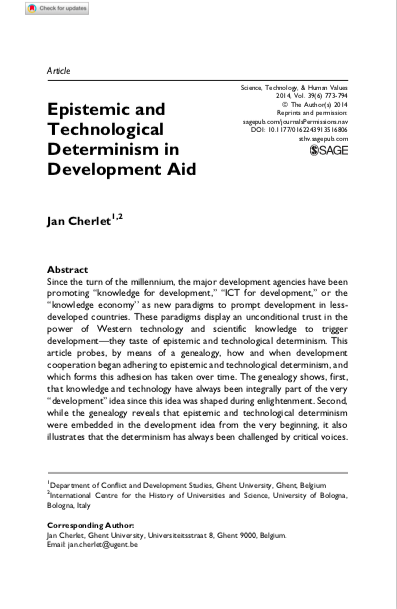
Abstract: "Since the turn of the millennium, the major development agencies have been promoting “knowledge for development,” “ICT for development,” or the “knowledge economy” as new paradigms to prompt development in less-developed countries. These paradigms display an unconditional trust in the power of Western technology and scientific knowledge to trigger development—they taste of epistemic and technological determinism. This article probes, by means of a genealogy, how and when development cooperation began adhering to epistemic and technological determinism, and which forms this adhesion has taken over time. The genealogy shows, first, that knowledge and technology have always been integrally part of the very “development” idea since this idea was shaped during enlightenment. Second, while the genealogy reveals that epistemic and technological determinism were embedded in the development idea from the very beginning, it also illustrates that the determinism has always been challenged by critical voices."
Jan Cherlet, "Cherlet, Jan. 2014. “Epistemic and Technological Determinism in Development Aid.” Science, Technology, & Human Values 39 (6): 773–94.", contributed by Angela Okune, Platform for Experimental Collaborative Ethnography, Platform for Experimental Collaborative Ethnography, last modified 14 June 2018, accessed 28 April 2025. https://worldpece.org/content/cherlet-jan-2014-“epistemic-and-technological-determinism-development-aid”-science
Critical Commentary
Angela Okune: This 2014 article in "Science, Technology and Human Values" by Jan Cherlet uses the form of a geneology to look at the promotion of "knowledge for development" or the "knowledge economy" by major development agencies.